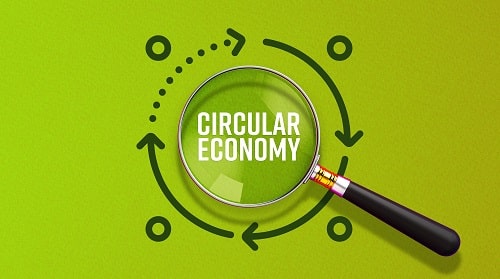The UK is halfway to net zero by 2050 and on a new, sped-up net zero pathway. In light of this, Graham Paul, sales, marketing & client services director at TEAM Energy, speaks to TEAM Energy’s efficiency and carbon reduction experts about the future of energy efficiency and net zero in the UK.
Features
What does the first year on an accelerated net zero path have in store for UK businesses?
When it comes to emissions reductions, it is still widely recognised that energy efficiency is the ‘first fuel’ en route to net zero because it is one of the quickest and most affordable ways to cut emissions. However, new research has shown that 95 per cent of companies globally do not have energy efficiency plans in place.
Having worked with many UK organisations, I know first-hand that as a nation we’re doing better than most thanks to the growing body of legislation mandating organisations to audit, plan and report on their actioned energy efficiency measures.
Although these can be time-consuming, they are necessary. By using energy wisely, at the right times, with the right technology, and transforming our buildings to eliminate waste, organisations can save money, protect themselves from energy price fluctuations and reduce their emissions.
 The government has indicated that minimum energy efficiency standards for commercial buildings will increase from an E to C rating from 2028. Photograph: iStock
The government has indicated that minimum energy efficiency standards for commercial buildings will increase from an E to C rating from 2028. Photograph: iStock
Such changes can form the backbone of their carbon reduction plans. As supply chain emissions increasingly determine purchasing and investor decisions, not reducing emissions effectively removes organisations from buyers’ and investors’ considerations.
As 2024 drew to a close, Kier Starmer announced a commitment to accelerate the UK’s journey towards net zero by 2050. Over the next 10 years, the UK must now reduce its emissions by 81 per cent compared to 1990 levels.
Energy efficiency will continue to play a central role for UK organisations on this new pathway, alongside bill management and carbon reduction planning. To find out what the first year on this new trajectory will be like for businesses and how they can navigate it, I spoke to some of our energy management and carbon reduction experts, starting with Tim Holman, head of operations at TEAM Energy.
Tim, there have been rumours of the energy efficiency standards changing. What does the new Government mean for energy efficiency?
Tim: “Through a parliamentary question reply in December and at the Labour Party conference in October, the Government suggested that minimum energy efficiency standards for commercial buildings would increase.
“Proposed changes are from an E to C rating from 2028 and the target is to further increase the minimum rating to B by 2030. This could introduce reduced validity timescales below 10 years for Energy Performance Certificate (EPC) and Display Energy Certificate (DEC) (for smaller buildings <1,000m2) as well as requiring EPCs to be valid at all times, making them a more frequent requirement for commercial landlords and a necessity for re-letting and lease renewals.
“Alongside this could be changes to what EPCs measure with new and amended metrics. These potential changes could lead to the implementation of substantial energy efficiency measures sooner rather than later.
“I would advise any landlord to get ahead of the curve and ensure now that your buildings and workplaces are ready for energy efficiency improvements. Failing to do so could lead to a loss of revenue or missing out on securing finance dependent on EPC ratings, for example.”
The exact details of the Minimum Energy Efficiency Standards changes are far from certain, and nor have the ESOS (Energy Savings Opportunity Scheme) deadlines been set. So, I spoke with senior energy consultant, Sam Arje to help shed light on the situation.
Sam Arje, the ESOS deadlines have shifted a lot, what does 2025 look like for businesses?
Sam: “The start of the year has seen organisations submitting their ESOS Phase 3 action plans, past the December deadline due to the Environment Agency’s (EA) promise to accept late submissions until 5 March 2025.
“Hopefully those organisations who have completed their Phase 3 audits have already prepared their action plans in full. Crucially, ESOS action plans must strike a balance between committing to meaningful action on energy efficiency and not overshooting what’s possible, especially now the plans and progress reports against them will be made public.
 Energy managers can use AI and data to get better insights into their energy estate. Photograph: iStock
Energy managers can use AI and data to get better insights into their energy estate. Photograph: iStock
“Organisations must act with their reputations and competitive advantage at the forefront of their minds, which will require more collaboration throughout the organisation and a shift towards a holistic energy management programme rather than focusing simply on the four-year cycle. As Phase 4 (which runs from 6 December 2023 until 5 December 2027) auditing begins, a holistic energy management approach will help support their now-required net zero planning and actions too.”
2025 will be the start of Market-wide Half-Hourly Settlement (MHHS) too. To find out more about both sides of the coin, I asked head of business change, Greg Armstrong his opinion.
As we’ve seen there are regulatory changes for energy efficiency ahead. What about energy markets, Greg?
Greg: “From this April onwards, energy suppliers will begin to migrate their systems and transition their customers to half-hourly bill settlements. This is predicted to create a ‘data deluge’ for energy suppliers, leading to a sharp increase in the potential for organisations’ energy bills to contain errors over the short term.
“Energy management and bill validation can address this issue. But the bigger opportunities are the tariffs and the unprecedented level of power that energy-users can unlock using accurate energy data. Suppliers must be commercially sensitive to 30-minute windows of energy use, energy users with the right data will have every opportunity to benefit from that.”
Processing that data will be an energy cost itself, and much of that task is done by AI. Tom Anderton, head of customer success at TEAM Energy, provided his insight on this issue.
How will data and AI impact energy and net zero? We’ve heard a lot about the energy drain from AI – Tom, what do you think about that?
Tom: “The challenge of energy security and net zero must be tackled with varied tools, prime among these are AI and big data. 2025 will see an uptick in both. We’ve just seen the launch of the Manchester Prize encouraging start-ups and tech entrepreneurs to decarbonise the grid in the UK, and COP 29 had its first ever ‘digitalisation day’.
“In their own organisations, energy managers can use AI and data to get better insights into their energy estate, reduce their emissions, and mitigate the risks of energy security and climate change.
“On a larger scale it’s true that data and AI have energy costs associated with them, but they’re often exaggerated, accounting for one or two per cent of energy use based on the International Energy Agency (IEA) figures. Compared to buildings, for example, that’s a small figure. And, importantly, the increase in AI can also help counter building energy use; so the small percentage increase incurred is made up for in savings.”
Whatever energy and emissions savings organisations make must now be reported, in detail, and to the public. Robert Webb, bureau operations manager, is lending his expertise on this topic.
Increasingly, many companies are now in the scope of sustainability reporting. What do they need to be mindful of when it comes to data, Robert Webb?
Rob: “We’ve now reached the ‘tipping point’ where sustainability reporting, including energy and carbon reporting, is mandatory and the primary form of non-financial reporting driving investor decisions. Because of this, the expectations around the accuracy of organisations’ reporting have increased massively, causing almost all CFO and finance leaders to report problems with the non-financial data they receive. Visibility, consistency, incompleteness and out-of-date data are the top issues such leaders face.
“Organisations must adopt smart systems to eliminate ‘single point of time’ data, search for interoperable tools that can connect to organisation-wide BI and management systems, and seek out expert support to get the right solution in place.”
So, in conclusion, 2025 has many deadlines and key dates that organisations need to be prepared for. Acting now will enable them to make small steps towards better energy management, carbon reduction, and overall integrated reporting. Leaving it too late will be costly, the benefits will be lost, and key deadlines could have passed by.
As we’ve seen, many organisations will be under more scrutiny in 2025 and beyond too. All stakeholders expect accurate sustainability reporting, and more of organisations’ complex emissions and energy reduction planning will be made public.
For information about support with data-driven energy management and sustainability reporting for 2025 and onwards, go to:
teamenergy.com
E: [email protected]
T: +44 (0)1908 041513
This article was supplied by Team Energy
FEATURES

How to build circular economy business models
By Chloe Miller, CC Consulting on 07 April 2025
Widespread adoption of a circular economy model by business would ensure greater environmental and economic value is extracted and retained from raw materials and products, while simultaneously reducing carbon emissions, protecting the environment and boosting business efficiency and reputation.

What does the first year on an accelerated net zero path have in store for UK businesses?
By Team Energy on 07 April 2025
The UK is halfway to net zero by 2050 and on a new, sped-up net zero pathway. In light of this, Graham Paul, sales, marketing & client services director at TEAM Energy, speaks to TEAM Energy’s efficiency and carbon reduction experts about the future of energy efficiency and net zero in the UK.

Aligning organisational culture with sustainability: a win, win for the environment and business
By Dr Keith Whitehead, British Safety Council on 04 April 2025
The culture of an organisation is crucial in determining how successfully it implements, integrates and achieves its sustainability and environmental goals and practices. However, there are a number of simple ways of ensuring a positive organisational culture where everyone is fully committed to achieving excellent sustainability performance.



